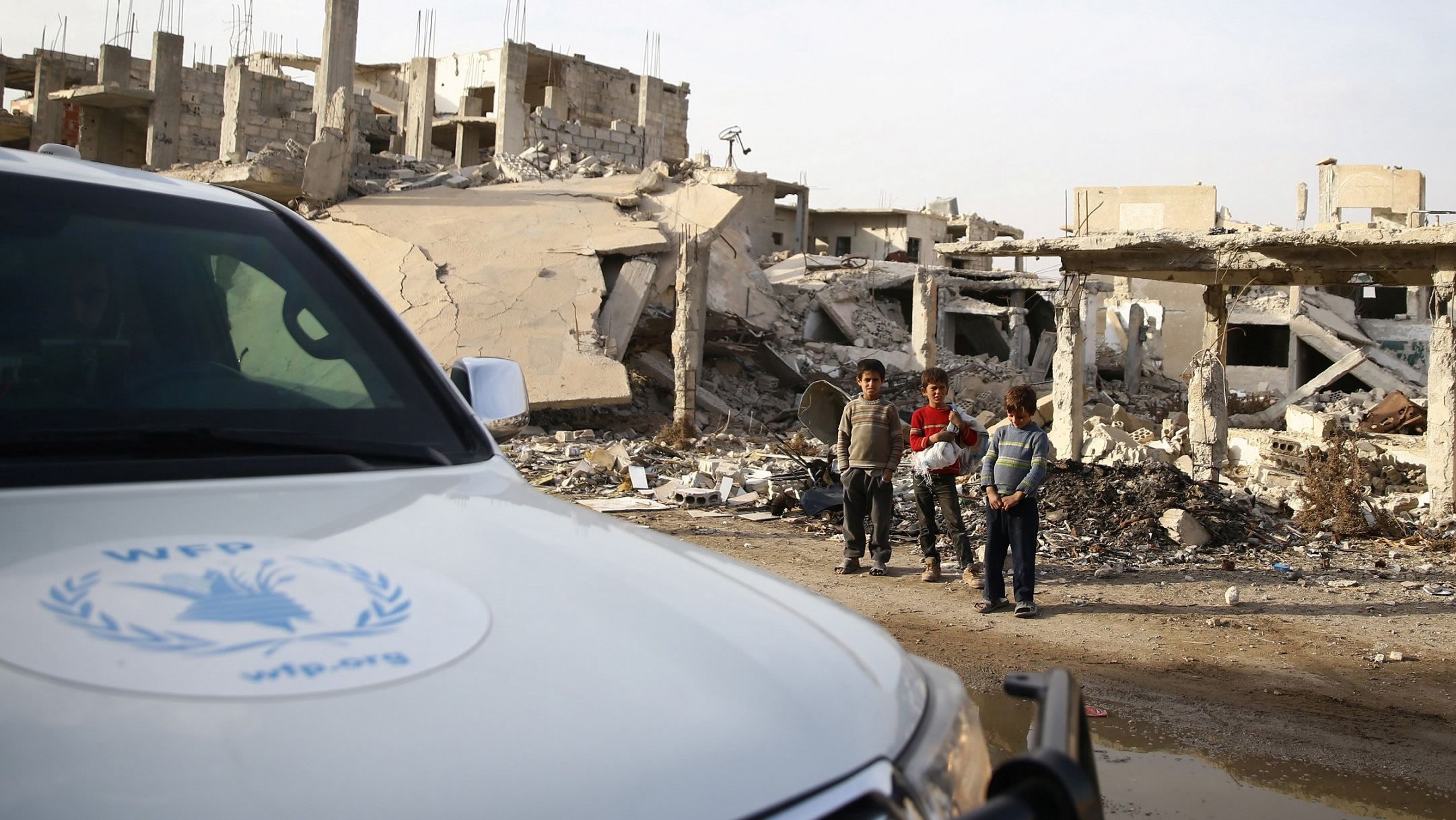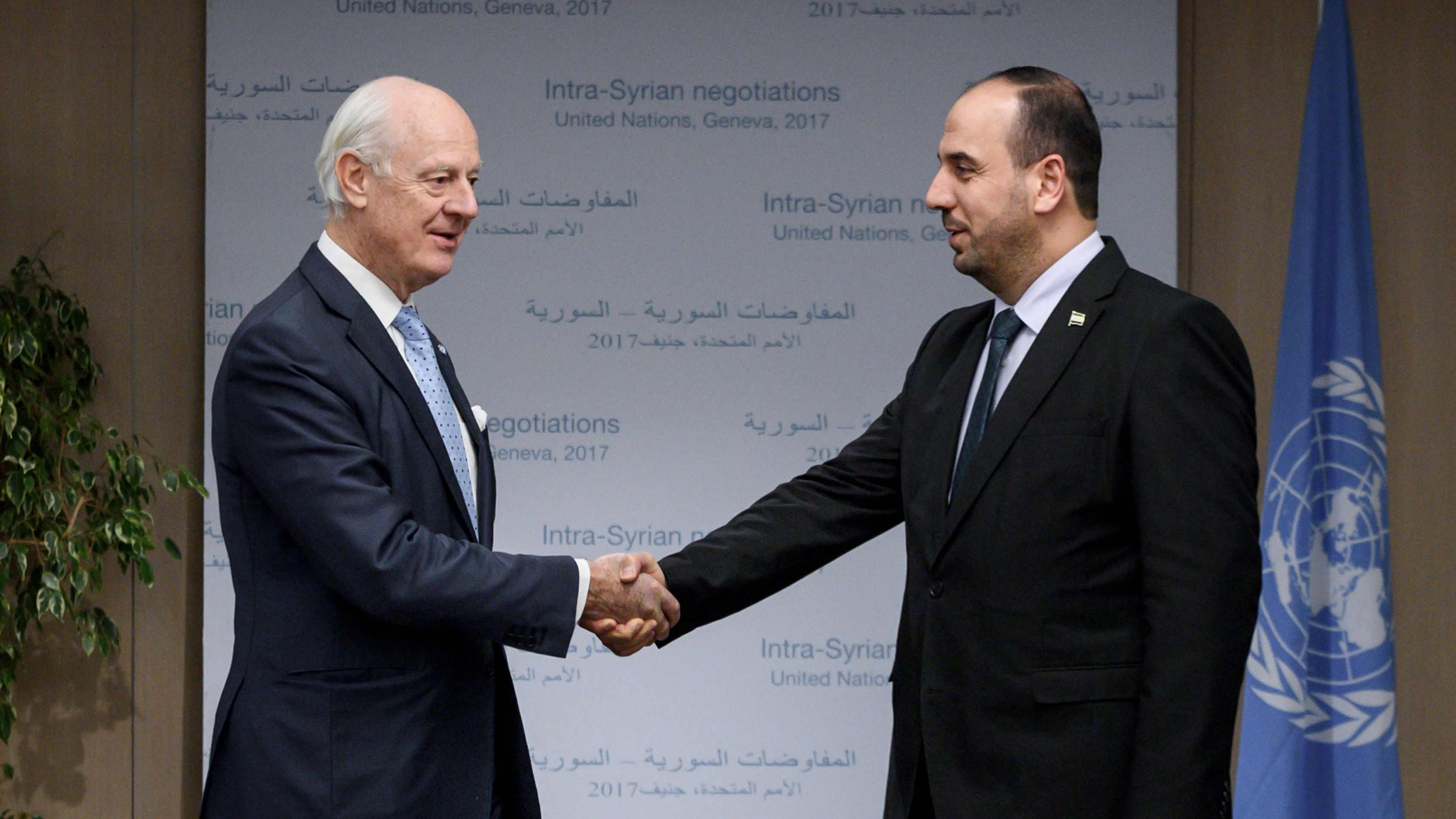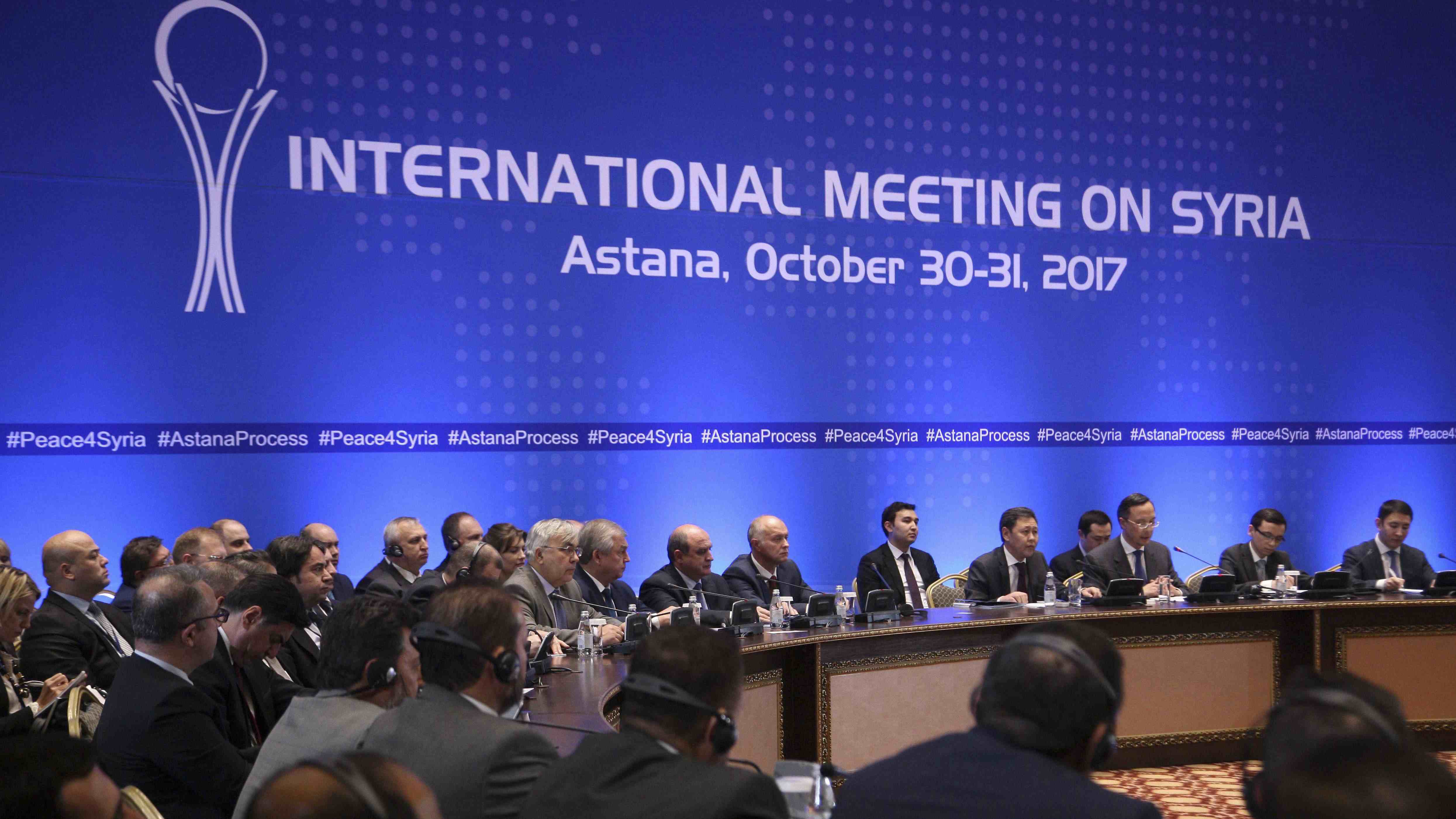
Politics
15:46, 29-Nov-2017
Geneva and Astana: How do the Syrian peace talks differ?
CGTN

The Syrian peace process has taken many forms since the conflict began in 2011, with separate initiatives brokered by the Arab League, the United Nations, the “Friends of Syria”, Iran, and Russia.
Now in its seventh year, the war has resulted in the death of more than 330,000 people and millions more have been displaced.
Efforts to mediate the conflict are now centered on UN-backed talks in Geneva, Switzerland, while seven separate rounds of negotiations brokered by Russia, Turkey and Iran have been held since the beginning of 2017 in Astana, Kazakhstan.
UN Special Envoy on Syria, Staffan de Mistura, and Turkish Prime Minister Binali Yildirim have insisted that the Astana process complements rather than competes with the Geneva talks. With the latest round of UN-backed negotiations underway, how do the Geneva talks differ from the discussions in Astana?
Geneva (Switzerland)
Broker: UN
Represented: Syrian government, Syrian opposition, UN Security Council members, EU.
Main aim: A political settlement in Syria.
First round: June 2012 (Eight rounds of intra-Syria talks).
Progress: The Geneva Communique agreed in 2012 set out targets for a schedule and process to draft a new constitution and hold elections as the basis for a “Syrian-led, Syrian-owned process” to end the conflict.

UN Special Envoy for Syria Staffan de Mistura (L) and head of the Syrian
Negotiation Commission (SNC) Nasr al-Hariri shake hands prior to the start of a
new round of Syria's peace talks at the United Nations in Geneva, Switzerland, November 28, 2017. /Reuters Photo
UN Special Envoy for Syria Staffan de Mistura (L) and head of the Syrian Negotiation Commission (SNC) Nasr al-Hariri shake hands prior to the start of a new round of Syria's peace talks at the United Nations in Geneva, Switzerland, November 28, 2017. /Reuters Photo
Major progress rides on whether representatives of the Syrian government are willing to hold direct talks with the delegation from the newly-unified opposition. Central to this is a compromise on the future of President Bashar al-Assad – the opposition insists he must step down.
De Mistura said on Tuesday that the government and opposition would have a chance to negotiate directly for the first time, but it was not clear if they would choose to do so.
Discussions also include counter-terrorism strategies. ISIL was in November removed from its final stronghold in the city of Deir Ezzor. The number of ISIL militants in Syria has been reduced significantly, and those who do remain are thought to be isolated.
De Mistura said on Tuesday that opportunities for a political solution had increased following the crack down on ISIL, but warned that government and opposition must not now turn their guns on the "de-escalation" zones.
Astana (Kazakhstan)
Guarantors: Russia, Turkey and Iran.
Represented: Syrian government, Syrian opposition, Russia, Turkey, Iran, Kazakhstan (observers from the UN, neighboring Middle Eastern countries and the US have also attended).
Main aim: A ceasefire in Syria.
First round: January 2017 (Seven rounds in total).
Progress: Talks in Astana have focused on the primary goal of achieving a ceasefire and latterly on humanitarian issues. The headline achievement of the discussions came in the sixth round, when four “de-escalation zones” were established inside Syria.

Members of the delegations take part in the peace talks on Syria in Astana,
Kazakhstan, October 31, 2017. /Reuters Photo
Members of the delegations take part in the peace talks on Syria in Astana, Kazakhstan, October 31, 2017. /Reuters Photo
“We emphasize the significant reduction of violence on the ground in Syria as a result of measures taken to strengthen and maintain the ceasefire regime, including launching the de-escalation areas and creating the security zones,” a joint statement from Russia, Turkey and Iran read after the seventh round of talks on October 29-30.
However, violence in the zones has not entirely ended. Ahead of the November peace talks in Geneva, a two-day ceasefire was agreed in a de-escalation zone on the edge of Damascus.

SITEMAP
Copyright © 2018 CGTN. Beijing ICP prepared NO.16065310-3
Copyright © 2018 CGTN. Beijing ICP prepared NO.16065310-3